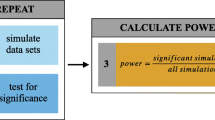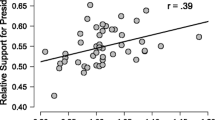Abstract
Resurgent interest in both mechanistic and counterfactual theories of explanation has led to a fair amount of discussion regarding the relative merits of these two approaches. James Woodward is currently the pre-eminent counterfactual theorist, and he criticizes the mechanists on the following grounds: Unless mechanists about explanation invoke counterfactuals, they cannot make sense of claims about causal interactions between mechanism parts or of causal explanations put forward absent knowledge of productive mechanisms. He claims that these shortfalls can be offset if mechanists will just borrow key tenets of his counterfactual theory of causal claims. What mechanists must bear in mind, however, is that by pursuing this course they risk both the assimilation of the mechanistic theories of explanation into Woodward’s own favored counterfactual theory, and they risk the marginalization of mechanistic explanations to a proper subset of all explanations. An outcome more favorable to mechanists might be had by pursuing an actualist-mechanist theory of the contents of causal claims. While it may not seem obvious at first blush that such an approach is workable, even in principle, recent empirical research into causal perception, causal belief, and mechanical reasoning provides some grounds for optimism.
Similar content being viewed by others
References
Ahn W., Kalish C. (2000) The role of mechanism beliefs in causal reasoning. In: Keil F., Wilson R. (eds) Explanation and cognition. The MIT Press, Cambridge, MA, pp 199–225
Baillargeon R. (1994) How do infants learn about the physical world?. Current Directions in Psychological Science 3(5): 133–140
Bechtel W., Richardson R. C. (1993) Discovering complexity: Decomposition and localization as strategies in scientific research. Princeton University Press, Princeton, NJ
Bogen J. (2004) Analyzing causality: The opposite of counterfactual is factual. International Studies in the Philosophy of Science 18: 3–26
Brewer W. F. (1999) Scientific theories and naive theories as forms of mental representation: Psychologism revived. Science and Education 8: 489–505
Bullock M. (1984) Preschool children’s understanding of causal connections. British Journal of Developmental Psychology 2: 169–191
Bullock M., Gelman R., Baillargeon R. (1982) The development of causal reasoning. In: Friedman W. J. (ed.) The developmental psychology of time. Academic Press, New York, NY, pp 209–254
Craver C. (2006) When mechanistic models explain. Synthese 153: 355–376
Craver C. (2007) Explaining the brain. Oxford University Press, New York, NY
Evans J. (2003) In two minds: Dual process accounts of reasoning. Trends in Cognitive Sciences 7: 454–459
Glennan S. (1996) Mechanisms and the nature of causation. Erkenntnis 44: 49–71
Glennan S. (2002) Rethinking mechanical explanation. Philosophy of Science 69: S342–S353
Glennan, S. (2010). Mechanisms, causes, and the layered model of the world. Philosophy and Phenomenological Research.
Hegarty M. (2004) Mechanical reasoning by mental simulation. Trends in Cognitive Sciences 8(6): 280–285
Horst S. (2007) Beyond reduction. Oxford University Press, New York, NY
Leslie A., Keeble S. (1987) Do six-month old infants perceive causality?. Cognition 25: 265–288
Machamer P. (2004) Activities and causation: The metaphysics and epistemology of mechanisms. International Studies in the Philosophy of Science 18: 27–39
Machamer P., Darden L., Craver C. F. (2000) Thinking about mechanisms. Philosophy of Science 67: 1–25
Mink J. (1996) The basal ganglia: Focused selection and inhibition of competing motor programs. Progress in Neurobiology 50: 381–425
Nersessian N. (2002) The cognitive basis of model based reasoning in science. In: Carruthers P., Stich S., Siegal M. (eds.) The cognitive basis of science. Cambridge University Press, Cambridge, MA, pp 133–192
Oakes L. M., Cohen L. B. (1990) Infant perception of a causal event. Cognitive Development 5: 193–207
Psillos S. (2004) A glimpse of the secret connexion: Harmonizing mechanisms with counterfactuals. Perspectives on Science 12: 288–319
Salmon W. (1998) Causality and explanation. Oxford University Press, New York, NY
Schlottmann A. (1999) Seeing it happen and knowing how it works: How children understand the relation between perceptual causality and underlying mechanism. Developmental Psychology 35(5): 303–317
Schlottmann A., Allen D., Linderoth C., Hesketh S. (2002) Perceptual causality in children. Child Development 7(3): 1656–1677
Schlottmann A., Shanks D. (1992) Evidence for a distinction between judged and perceived causality. The Quarterly Journal Of Experimental Psychology 44: 321–342
Scholl B., Tremoulet P. (2000) Perceptual causality and animacy. Trends in Cognitive Sciences 4(8): 299–409
Schwartz D. L., Black J. B. (1996) Shuttling between depictive models and abstract rules: Induction and fall-back. Cognitive Science 20: 457–497
Tabery J. (2004) Synthesizing activities and interactions in the concept of a mechanism. Philosophy of Science 71: 1–15
Thagard P. (2010) How brains make mental models. In: Magnani L., Carnielli W., Pizzi C. (eds) Model-based reasoning in science and technology. Abduction, logic and computational discovery. Springer, Berlin, pp 447–462
Trout J. D. (2002) Scientific explanation and the sense of understanding. Philosophy of Science 69: 212–233
Walsh, C., & Sloman, S. (2005). The meaning of cause and prevent: The role of causal mechanism. Proceedings of the Twenty-Seventh Annual Conference of the Cognitive Science Society (pp. 2331–2336). Hillsdale, NJ: Erlbaum.
Waskan J. (2006) Models and cognition: Prediction and explanation in everyday life and in science. The MIT Press, Cambridge, MA
Waskan J. (2008) Knowledge of counterfactual interventions through cognitive models of mechanisms. International Studies in Philosophy of Science 22(3): 259–275
Waskan J. (2010) Applications of an implementation story for non-sentential models. In: Magnani L., Carnielli W., Pizzi C. (eds) Model-based reasoning in science and technology. Abduction, logic, and computational discovery. Springer, Berlin, pp 463–476
Wolff P. (2007) Representing causation. Journal of Experimental Psychology: General 136(1): 82–111
Woodward J. (2002) What is a mechanism? A counterfactual account. Philosophy of Science 69: 366–377
Woodward J. (2003) Making things happen. Oxford University Press, New York
Woodward J. (2004) Counterfactuals and causal explanation. International Studies in the Philosophy of Science 18: 41–72
Woodward, J. (forthcoming). Causal perception and causal cognition. In J. Roessler (Ed.), Perception, causation and objectivity: Issues in philosophy and psychology. New York, NY: Oxford University Press.
Wright C., Bechtel W. (2007) Mechanisms and psychological explanation. In: Thagard P. (ed.) Philosophy of psychology and cognitive science. Elsevier, New York, NY, pp 32–79
Author information
Authors and Affiliations
Corresponding author
Rights and permissions
About this article
Cite this article
Waskan, J. Mechanistic explanation at the limit. Synthese 183, 389–408 (2011). https://doi.org/10.1007/s11229-010-9869-1
Received:
Accepted:
Published:
Issue Date:
DOI: https://doi.org/10.1007/s11229-010-9869-1




